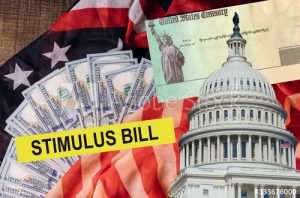When a client retains an attorney to represent him or her in a divorce or other family law dispute,  usually the goal is to try and settle the matter. Trying a case is viewed as a last resort when all efforts to reach an amicable resolution have failed. From the outset, the courts do everything they can to encourage parties to reach an agreement, and participation in various forms of alternate dispute resolution, including Early Settlement Panels and Custody/Economic Mediation, are mandated in hopes of accomplishing that goal. The parties reach an agreement. They enter into a “contract’ memorializing same. The court may even “approve” it and close the case as “settled”. That’s the end of it, i.e. a contract is a contract – right? Not so fast! When it comes to family law “contracts” it is clear that the court has the last word if it is enforceable or not. “Equitable considerations” often trump “contract principles”. However, what is “equitable” seems to turn on what result is the most fair and reasonable one given the circumstances of that given case.
usually the goal is to try and settle the matter. Trying a case is viewed as a last resort when all efforts to reach an amicable resolution have failed. From the outset, the courts do everything they can to encourage parties to reach an agreement, and participation in various forms of alternate dispute resolution, including Early Settlement Panels and Custody/Economic Mediation, are mandated in hopes of accomplishing that goal. The parties reach an agreement. They enter into a “contract’ memorializing same. The court may even “approve” it and close the case as “settled”. That’s the end of it, i.e. a contract is a contract – right? Not so fast! When it comes to family law “contracts” it is clear that the court has the last word if it is enforceable or not. “Equitable considerations” often trump “contract principles”. However, what is “equitable” seems to turn on what result is the most fair and reasonable one given the circumstances of that given case.
The extent of family law contracts being enforceable as a matter of interpretation was highlighted in the recent Appellate Division case of Holtham v. Lucas, 460 NJ Super. 380 (App. Div. 2019). In Holtham, the parties entered into a marital settlement agreement in resolution of their divorce. The agreement provided for the enforcement of a previously entered Prenuptial Agreement, as well as for the husband making certain payments and property transfers to the wife, including the payoff of an auto loan and transfer of the car title by July of 2017. The Agreement also included a provision that if the husband defaulted in any of it’s obligations, the wife would not only be entitled to reasonable counsel fees incurred to enforce, but that the husband would be subject to a per diem penalty of $150.00 for every day he failed to comply. The husband did not pay off the car loan or transfer title by the required date; rather, he asserted various offsetting claims as his reason for not doing so. He finally paid off the car loan and transferred title (although wife had always enjoyed its use and possession) but not until 4-5 months later, and after receiving wife’s enforcement motion. The trial court not only ordered the husband to pay over $6,000.00 towards wife’s attorney fees, it enforced the per diem penalty provision by ordering husband to pay $18,450.00 (for each day of non – compliance between July 9 and November 8, 2017), noting that although the husband had the ability to comply, he had unjustifiably delayed by interposing offsetting claims he had already forfeited under the Agreement’s mutual release provision. The husband appealed arguing that the $150 daily charge constituted an unenforceable penalty.
Simply applying traditional contract principles, the Appellate Division actually agreed with the husband that a $150 per diem charge would constitute an unenforceable penalty. The court noted that according to well – settled contract law, a provision that stipulates an unreasonably large amount of damages for a future breach would be an unenforceable penalty. Also referred to as the “Penalty Rule”, it was intended to avoid oppression, excessive recovery (that is recovery that far exceeds the economic losses normally recoverable for breach of contract), and the deterrence of efficient breach. Such stipulated damage provisions must be scrutinized for reasonableness and their enforceability turning primarily on the extent the stipulated amount is within a plausible range of actual damages and the difficulty of calculating damages upon breach. Analyzing these principles, the court found that the husband had met his burden to demonstrate that the $150 per diem charge was a penalty, noting that the “harm” suffered by the wife for the 4-5 month delay fell short of $18,450, that she had been able to retain full use of the vehicle, and that the “damage” under this penalty provision would have been the same regardless of the number, nature or amount of the obligation husband was deemed to be in default of. However, this did not end the court’s analysis, concluding that this “Penalty Rule” would not apply with equal force to marital settlement agreements embodied in final divorce judgments.
 New Jersey Divorce and Family Lawyer Blog
New Jersey Divorce and Family Lawyer Blog



